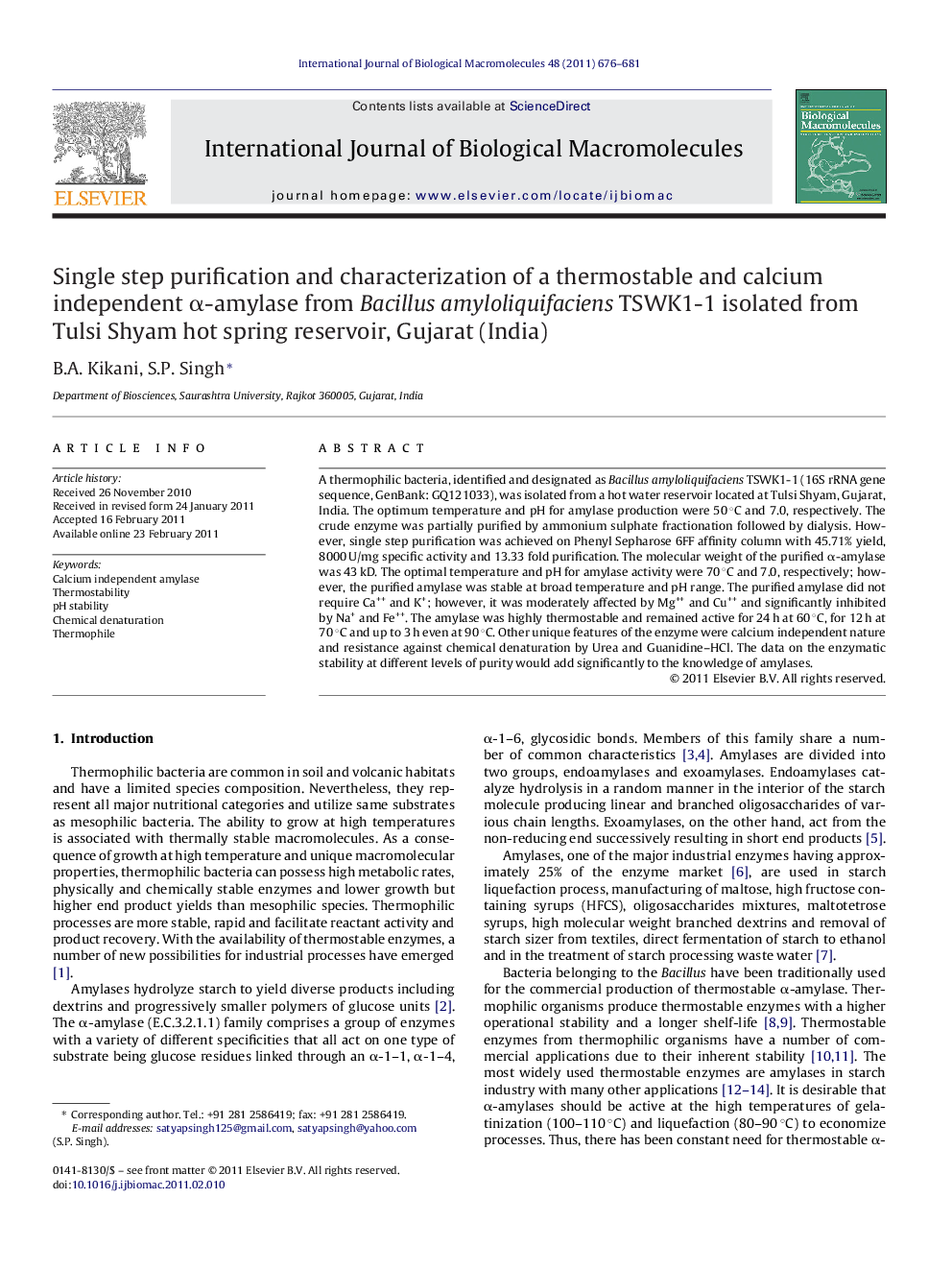| Article ID | Journal | Published Year | Pages | File Type |
|---|---|---|---|---|
| 8335948 | International Journal of Biological Macromolecules | 2011 | 6 Pages |
Abstract
A thermophilic bacteria, identified and designated as Bacillus amyloliquifaciens TSWK1-1 (16S rRNA gene sequence, GenBank: GQ121033), was isolated from a hot water reservoir located at Tulsi Shyam, Gujarat, India. The optimum temperature and pH for amylase production were 50 °C and 7.0, respectively. The crude enzyme was partially purified by ammonium sulphate fractionation followed by dialysis. However, single step purification was achieved on Phenyl Sepharose 6FF affinity column with 45.71% yield, 8000 U/mg specific activity and 13.33 fold purification. The molecular weight of the purified α-amylase was 43 kD. The optimal temperature and pH for amylase activity were 70 °C and 7.0, respectively; however, the purified amylase was stable at broad temperature and pH range. The purified amylase did not require Ca++ and K+; however, it was moderately affected by Mg++ and Cu++ and significantly inhibited by Na+ and Fe++. The amylase was highly thermostable and remained active for 24 h at 60 °C, for 12 h at 70 °C and up to 3 h even at 90 °C. Other unique features of the enzyme were calcium independent nature and resistance against chemical denaturation by Urea and Guanidine-HCl. The data on the enzymatic stability at different levels of purity would add significantly to the knowledge of amylases.
Related Topics
Life Sciences
Biochemistry, Genetics and Molecular Biology
Biochemistry
Authors
B.A. Kikani, S.P. Singh,
